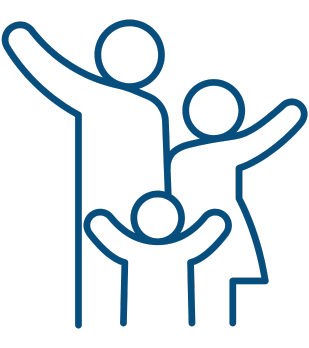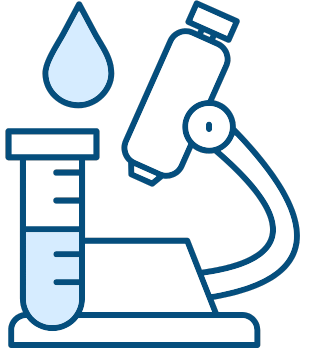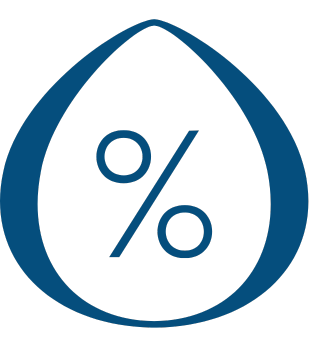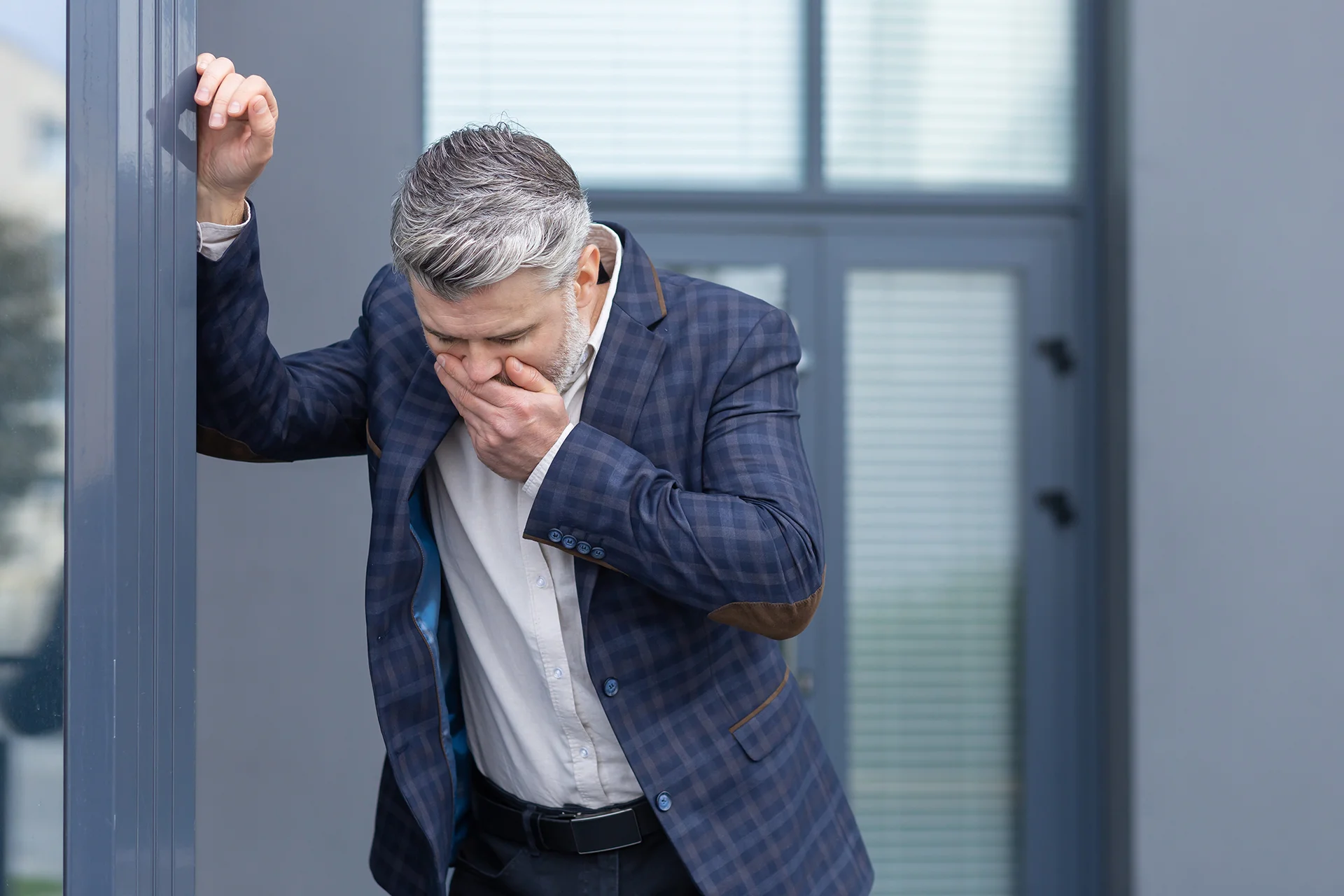Imagine a situation: you’re having dinner with friends or family in a restaurant. After eating, you suddenly feel uncomfortable in your stomach, nauseous and maybe even vomiting. This could be a case of food poisoning. Food poisoning is a form of gastroenteritis, which is usually caused by an infection caused by bacteria, viruses, parasites or toxins. It is a common but unpleasant and sometimes even dangerous health problem that can overshadow the pleasant moments of life.
In this article, together with Drops Clinic’s specialist doctors, we will discuss what food poisoning is and how it manifests itself, how to avoid this unpleasant problem and what to do if you are suddenly struck by this health problem. Find out how to enjoy food safely and deliciously.
How is food poisoning caused?
Food poisoning is a serious health problem that occurs when a person consumes food or drink that contains harmful microbes, bacteria, viruses or toxins. The condition occurs when pathogenic substances or toxins enter a person’s digestive system and start working in the body.
At the beginning of the poisoning process, pathogenic bacteria, viruses or toxins are usually introduced into the human body through ingested food. Some pathogens can cause illness even in the presence of low levels of bacteria or viruses.
Once pathogens enter the intestine, they start to multiply and release toxins that damage intestinal tissues or are absorbed into the bloodstream and affect other organs. Symptoms of poisoning then appear within a few hours of eating the contaminated food. Symptoms of food poisoning can include nausea, vomiting, diarrhoea, abdominal pain, heat, chills and other unpleasant sensations.
The causes of food poisoning are varied. However, the most common are:
- Improper food storage: when food is not kept at a cold or warm enough temperature, microbes can multiply quickly. This is especially true for foods that are high in protein, such as meat and fish.
- Improper food preparation: Improperly prepared and undercooked food, i.e. food that has not been baked or boiled for a sufficient time, can leave bacteria that can cause infection when they enter the body.
- Poor hygiene: Hands are the main means of transmission of bacteria. If dirty hands touch food during cooking, bacteria can enter the food.
- Spoiled food: Eating spoiled food or food that has long been out of use can lead to symptoms of food poisoning..
To avoid food poisoning, it is important to follow good hygiene rules, prepare and store food properly and avoid eating foods that may be contaminated. If you suspect food poisoning, it is important to seek immediate medical attention to prescribe treatment and prevent complications.
Main symptoms of food poisoning
Food poisoning is a common health problem. To combat this problem effectively and avoid complications, it is important to know the main symptoms of food poisoning and to spot them in time.
The most common signs of food poisoning are:
High body temperature: It is not uncommon to experience a rise in general body temperature after food poisoning. This indicates that the body is trying to fight the infection.
Nausea and vomiting: This is probably the most common symptom of food poisoning, occurring in every case of food poisoning. The most common symptom of food poisoning is the sudden onset of nausea, which is often accompanied by vomiting. This is the body’s attempt to get rid of the substances that caused the infection. These symptoms are very uncomfortable and debilitating, so it is very important to monitor your condition and to seek medical attention immediately if the situation worsens.
Diarrhoea. This is another way in which the body tries to get rid of harmful substances. However, very intense diarrhoea can lead to a rapid loss of fluids, which can lead to dehydration and require additional fluid intake. It is particularly important to monitor whether there is blood during diarrhoea. If this is noticed, it is important to seek immediate emergency care.
Abdominal pain: Severe abdominal pain is also a common symptom of food poisoning and often accompanies diarrhoea. In the case of food poisoning, abdominal pain may be twitching, clawing or even tearing.
Heat and chills. This is the body’s reaction to the poisoning and an attempt to fight the infection.
Headache and muscle weakness: Food poisoning can cause general malaise and weakness. This may be manifested by headache, dizziness and muscle weakness.
Symptoms can usually start within one to several hours after eating contaminated food. Sometimes, signs of food poisoning can appear days later. The intensity of symptoms can vary greatly depending on the severity of the poisoning and the amount of contaminated food consumed. Symptoms usually disappear after about 24-48 hours.
It is important to remember that food poisoning can also cause dehydration, especially if diarrhoea and vomiting are intense. It is therefore necessary to consume plenty of fluids such as water, teas, electrolyte drinks or broth to avoid the effects of dehydration. However, it is very important not to overload the body while it is clearing the infection. Therefore, if a person does not want to eat or drink, he or she should do so, and only start eating and drinking when he or she feels like it.
If the symptoms become severe or last for a long time and do not go away after a few days, it is necessary to consult a doctor who can determine the cause of the poisoning and prescribe treatment. Prevention, such as proper storage and preparation of food, is also essential to avoid further risks of food poisoning. Knowing these symptoms can help you recognise the signs of food poisoning more quickly and take timely action to improve your health.
What to do in case of food poisoning?
Food poisoning can be a potentially dangerous condition, but if you spot the symptoms in time, know what to do in case of food poisoning and take the right measures, you can quickly regain your health. Here are some tips and steps you can take in case of food poisoning:
Stop eating: stop eating food at least in the first hours of the poisoning to give your digestive system time to recover. Even though it is normal to lose our appetite and not to want to eat or drink anything after being poisoned. It is important not to put too much strain on the body as it fights the infection. Therefore, if you don’t want to eat or drink, you shouldn’t do so. When the symptoms start to subside, you can gradually return to low-fat and easily digestible foods.
It is very important to avoid dehydration in case of poisoning, as intense vomiting or diarrhoea rapidly depletes the body of its fluids and nutrients. Try to drink plenty of water to compensate for the loss of fluids, if you feel like it. Broths or teas are also suitable. If, however, the symptoms persist for a longer period of time and you are unable to drink or eat anything, seek medical advice for intravenous therapy to avoid the risk of dehydration.
Eat light food: When symptoms subside, start eating small portions of low-calorie, low-fat, light food. It is common for the body to remain irritated for a long time after a poisoning, so it is best to choose foods that are easily digestible, such as lean meats, breadcrumbs or cooked rice. This will help you to achieve the required nutritional intake without burdening the intestines.
Avoid alcohol and caffeine: Temporarily abstain from alcohol and caffeine to avoid straining your digestive system. Alcohol and caffeinated products can irritate the digestive system and make your condition worse. Also, give up smoking, which can also interfere with your body’s ability to fight the disease.
If the symptoms of food poisoning are severe, last for more than five days, or if you notice blood in your stool, contact a medical professional immediately. A doctor will be able to determine the cause of the poisoning and prescribe treatment if necessary. Also, if you vomit heavily or have diarrhoea for a long period of time, seek medical attention to avoid dehydration.
Doctors should also be consulted to help you feel better, to help relieve any pain you may have in the abdominal area from frequent vomiting, and to reduce or eliminate nausea. Doctors can reduce the frequent temperature rises during poisoning and the feeling of chills with the help of the right medication.
Maintain hygiene: After each time you vomit or have diarrhoea, remember to wash your hands and clean your surroundings to prevent the spread of infection. Also get rid of any leftover food that may have caused food poisoning.
How to treat food poisoning?
In the case of food poisoning, proper treatment is essential to help the body get rid of toxins and recover quickly.
Here are some ways to treat food poisoning and feel better:
1.Intravenous therapy. Intravenous therapy is a technique in which medicines, nutrients and fluids are dripped directly into a vein through a catheter. Food poisoning causes severe vomiting and diarrhoea, with loss of fluid and loss of appetite. During intravenous therapy, the person is given a variety of medicines and nutrients to ensure that the body receives enough nutrients, does not become completely exhausted and has enough energy to fight the infection. Intravenous therapy also helps to quickly restore fluid and electrolyte balance in the body. The therapy helps to remove toxins from the blood more quickly and thus improves overall well-being.
Intravenous therapy involves the administration of special drugs that can increase a person’s appetite, which is useful when a person has not eaten for a long period of time due to a prolonged unsatisfactory state of mind. Find out more about intravenous therapy here.
2.Fluid restoration: if the food poisoning is not severe, the patient may be given a rehydration solution. This is a special mixture of fluids designed to replace the loss of water and salts in the body. You can drink this solution in small portions at short intervals.
It is also possible to take a sip of this solution if the person has not yet developed the urge to drink anything.
Medications:Your doctor may prescribe medicines to reduce nausea, vomiting and diarrhoea. Medicines to reduce fever and symptoms of fever may also be prescribed. These medicines are usually only given when the symptoms of poisoning are less intense and the medicines may have time to work.
In other cases, medicines are dripped to prevent the patient from vomiting.
- Food refusal: In the early stages of food poisoning, many people may feel unwell and have no desire to eat. In this case, it is best to avoid food. It is not recommended to eat for at least 24 hours. Water should only be drunk when you want it. Once the symptoms have eased, you can start eating light food.
- Industrial adsorbents: Some medicines called adsorbents (such as activated charcoal) can help to bind toxins in the stomach and intestines, preventing them from penetrating further into the body. This can help reduce the symptoms of poisoning.
However, it is important to know how much of this type of medicine a patient needs to take. The dosage of these medicines is calculated according to a person’s weight.
- Rest and sleep: Poisoning can cause the body to become very weak. To help the body fight the infection it is important to rest and give the body a chance to recover. Adequate rest and a good night’s sleep can speed up the removal of toxins from the body.
- If the symptoms of poisoning are severe or do not go away on their own after a few days, medical attention may be needed. Doctors will provide specialised help after carrying out tests and determining the cause of the poisoning.
Importantly, the treatment of food poisoning can vary depending on the severity of the poisoning, the symptoms and the bacteria that caused the poisoning. If you experience more severe symptoms of food poisoning, seek immediate medical attention to avoid serious complications.
What should be avoided in case of poisoning?
It is important to follow certain dietary recommendations in the event of food poisoning, especially if it causes digestive problems. First of all, it is recommended to avoid heavier foods, especially during the first day after the poisoning, in order not to overload the digestive system. Avoid high-fat and high-protein meals, which can be difficult to digest.
At the same time, it is a good idea to follow a light diet that includes foods that are good for digestion, such as cooked rice, lean meats, fruit and vegetables. Avoid alcohol, sugary and caffeinated drinks because of their potential to irritate the digestive tract.
It is also better to stay away from salty foods, chocolate, spices, pasta, sausages and oily fish as these can increase digestive problems.
When to see a doctor?
In the event of food poisoning, it is important to pay attention to your health and know when to seek medical attention. Here are some of the points at which you should seek medical advice immediately:
- Diarrhoea for more than 5 days or diarrhoea with blood: If you have diarrhoea for more than five days or if you notice blood in your stool, this is a serious sign that you need to see a doctor as soon as possible. Such symptoms may indicate that the poisoning has led to complications and serious problems with the digestive system.
However, if you feel unwell, it is certainly possible to see a doctor on the first day of diarrhoea.
- If you experience intense abdominal pain, persistent nausea and cannot retain even small amounts of fluid, seek medical attention to prevent complications and further deterioration.
- If you notice signs of dehydration, such as sudden weight loss, fatigue, severe thirst, dry lips and skin, it means that your body is losing too much fluid. Dehydration can be dangerous to health, especially for young children and older people. See your doctor immediately to ensure the right balance of fluids in your body.
- Symptoms of poisoning occur in an infant less than one year old: Food poisoning can be particularly dangerous in young babies. If you notice signs of food poisoning in a baby, consult a paediatrician immediately.
The most important thing to remember is that you should not panic immediately if you get food poisoning. Usually, the symptoms of food poisoning will go away on their own after a few days. Monitor your health and if you notice a marked worsening of your condition, seek medical attention. If you feel that you or your children are not getting better, even though you have tried a number of remedies, it is certainly possible to seek medical advice. A doctor will be able to carry out the necessary tests, make a diagnosis and prescribe the right treatment to help you recover quickly.
How to avoid food poisoning?
Prevention is one of the most accurate ways to avoid food poisoning. It is important to follow strict hygiene rules when eating food, especially risky products such as meat, fish or eggs. Hands must be washed thoroughly before eating or cooking to prevent the transmission of bacteria and germs into the food.
You also need to ensure that foods are properly refrigerated or processed to avoid the spread of germs.
Another important aspect is food safety labelling. When buying products, it is necessary to pay attention to the expiry date and other information that may indicate the safety of the product. This information can help to avoid adverse effects of consumption.
It is also important to prepare food properly. Ensure that meat, fish and eggs are properly cooked, i.e. fully baked, rare or well cooked. Also, try to avoid cross-contamination – do not touch food that has already been cooked with dirty hands or place it on dirty surfaces.
Special risk groups, such as children, the elderly and pregnant women, need special attention in the selection and preparation of food, as they are more susceptible to food hazards.
Eat safely. Do not consume food that is already spoiled or looks suspicious, has an unpleasant smell or strange appearance. Also pay attention to hygiene conditions when eating in cafes, restaurants or other public places.
Avoid dirty, unfiltered water and untreated food or even ice cream in drinks, especially when travelling abroad or in places where hygiene standards are not high. Water should only be drunk from reliable sources or boiled. Try to drink only bottled water when travelling.
By following these simple but important preventive measures, we can reduce the risk of food poisoning and ensure safe food consumption.
Food poisoning is a problem that all of us have faced, probably more than once. Although food poisoning is a common problem, it is extremely unpleasant and can overshadow the pleasant moments of life. If you are experiencing severe symptoms of food poisoning, contact the specialist doctors at Drops Clinic. Our clinic doctors will examine you, determine the right treatment and help you to recover quickly. And to help you feel better even faster, take advantage of the intravenous therapy we offer. We only work with certified products and equipment from world-renowned manufacturers.




